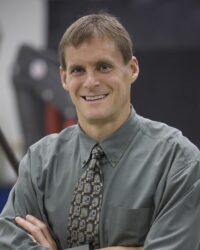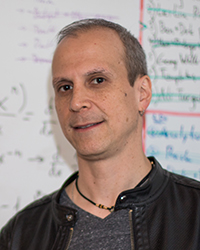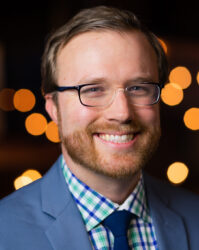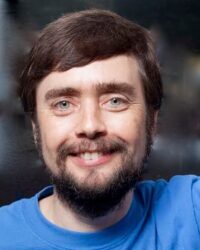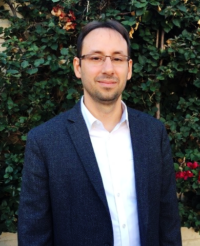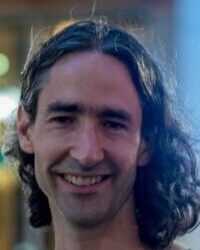 |
Ben Allen
Emmanuel College |
Does evolution imbue living organisms with a purpose? A narrow understanding of natural selection would suggest that organisms should act only to maximize their own survival and reproduction. But population structure—which includes spatial layout, group subdivision, and/or mating patterns—provides an opportunity for synergistic, cooperative behaviors to evolve. Using the idea of a utility function, I will mathematically demonstrate how these cooperative behaviors are purposeful—their purpose shaped by natural selection. |
 |
Dominic Halsmer
Oral Roberts University |
It is proposed that models of living organisms, and other natural systems, be developed using a reverse-systems-engineering approach with a focus on affordances. An end-user affordance is simply any relationship between an agent and its environment that allows for a potential action to be performed. Part-to-part affordances are relationships between parts of a complex system that ultimately contribute to an end-user affordance. As such, affordances play a key role in niche construction, and nested affordances (in both space and time) can provide measures of ingenuity and purpose. |
 |
Cristian Huepe
Cristian Huepe Labs Inc. |
Living systems are often organized as hierarchies of structures that form functioning modules at multiple levels of complexity. These can range from the biochemical networks that produce cellular dynamics to the food networks that underlie complex ecologies. This Research Idea consists in modeling these structures as hierarchies of modular adaptive dynamical networks that follow evolutionary processes and artificial life algorithms. These will represent “organisms” composed of hierarchies of modules that evolve based on fitness criteria imposed at different scales and to serve as functional components for the next level of complexity. |
 |
Tomas Leon
University of California, Berkeley |
Understanding mosquito flight is important for effective control of malaria and other mosquito-borne diseases, yet it remains poorly characterized. I propose to use a mechanistic modeling approach to identify the patterns and parameters that describe the different goal-oriented behaviors of mosquitoes, including designing novel metrics to better capture the inherent complexity. If we wish to thwart incidental disease transmission from the bites and blood feeding of infected mosquitoes, we need to understand what precipitates and precedes such behavior in a modeling context, and if such models can match reality in any meaningful sense. |
 |
Michael Levin
Tufts University |
The study of purpose has proceeded in “standard” model species: living organisms that are the product of natural selection for specific or goal-directed activities. I propose to use a new model system to facilitate empirical study of the origin, mechanisms, scaling, and modification of functional goals for diverse biological systems. By building and characterizing synthetic living machines from wild-type cells – novel bodies with emergent behaviors – we will gain quantitative insight into how behavioral and physiological goals arise de novo in novel somatic implementations in the absence of genomic change. |
 |
Joanna Masel
University of Arizona |
There are two kinds of competition: relative to another individual, or against an absolute standard. There might be tradeoffs between different traits promoted by each, or simply limits to the speed with which progress can be made on multiple fronts at the same time. Assumptions about the nature of competition get hardwired into the foundational models of different fields, with evolutionary biology assuming by default that competition is relative, and economics and ecology assuming it absolute. A new general theory that captures the interplay between relative and absolute competitions and purposes will help both articulate and answer important questions about which goal is favored by competition when and why. |
 |
John Realpe-Gomez
Laboratory for Research in Complex Systems – Global Viral |
The widespread belief that agency and experience “emerge” from some objective agent-independent world has encouraged claims that agency and experience are mere illusions. Here we propose to mathematically investigate the scarcely explored alternative philosophical stance of phenomenology—which focuses instead on how scientists eliminate the spurious aspects of their subjective experience to establish an objective science—by building on embodied cognition to model scientists performing experiments and the mathematics of self-reference to implement the intrinsic perspective. Building on recent work showing that this approach can entail a dynamics formally analogous to quantum dynamics, we will investigate if this agent-based approach can entail other aspects of fundamental physics as well—e.g., relativity—and will explore potential connections with cognitive/consciousness science with the aim to help reconcile agency and experience with the fundamental laws of nature. |

